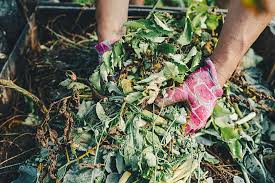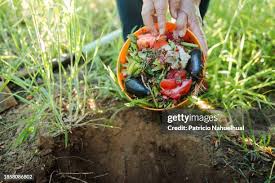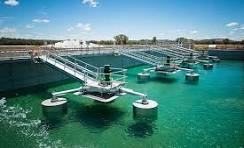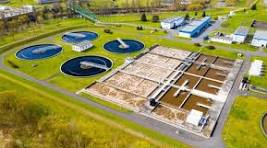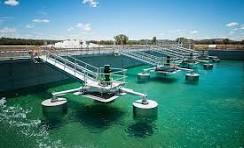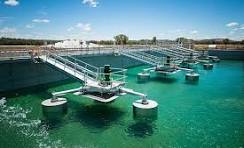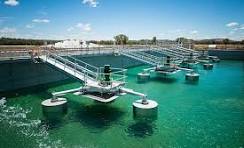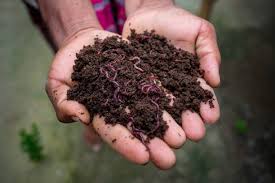ENQUIRE NOW FOR BEST COMPOSTING MACHINES IN INDIA – https://share.hsforms.com/1d12AT_oJScm8iiXbjSrEIwrh2r7
INTRODUCTION
For societies, hotels, restaurants, builders, and commercial establishments, understanding the Cost of Composting Machines in Mumbai – Price, Maintenance & ROI Explained has become critical in 2025. Rising BMC waste charges, stricter environmental rules, and increasing landfill restrictions are pushing property owners toward smart, in-house organic waste solutions.
At Green Planet Solutions Pune, a reputed organic composting manufacturer in India, we help clients select cost-effective composting machines that deliver powerful performance, minimal maintenance, and fast return on investment.
🏙️🌱 Cost of Composting Machines in Mumbai – Price, Maintenance & ROI Explained
(H1 with exact focus keyphrase for SEO clarity)
✅ Price Range: Cost of Composting Machines in Mumbai – Price, Maintenance & ROI Explained
Here’s a realistic price guide for Mumbai-based installations:
| Capacity (Per Day) | Suitable For | Approx. Price Range |
|---|---|---|
| 25–50 kg | Small Restaurants, Cafes | ₹1.2 – ₹2.5 Lakhs |
| 100–150 kg | Medium Restaurants, Housing Societies | ₹3 – ₹6 Lakhs |
| 200–500 kg | Large Societies, Hotels, Hostels | ₹7 – ₹15 Lakhs |
| 1+ Ton | Commercial Complexes, Malls | ₹18 – ₹40+ Lakhs |
These prices vary based on automation level, odor control features, and durability.
Image ALT: Cost of Composting Machines in Mumbai – Price, Maintenance & ROI Explained – machine price chart
ENQUIRE NOW FOR BEST COMPOSTING MACHINES IN INDIA – https://share.hsforms.com/1d12AT_oJScm8iiXbjSrEIwrh2r7
✅ Maintenance Cost: Cost of Composting Machines in Mumbai – Price, Maintenance & ROI Explained
Maintenance is affordable when managed by a professional organic composting manufacturer in India like Green Planet Solutions Pune.
| Maintenance Element | Approx. Annual Cost |
|---|---|
| AMC (Annual Maintenance Contract) | ₹15,000 – ₹80,000 |
| Enzyme / Bio Culture | ₹3,000 – ₹10,000 |
| Carbon Filters Replacement | ₹5,000 – ₹25,000 |
| Electricity Cost | ₹1,500 – ₹6,000 / month |
Proper maintenance ensures:
✔ Odor-free operations
✔ Zero pest problems
✔ Long machine life
✔ Compliance with BMC norms
Image ALT: Cost of Composting Machines in Mumbai – Price, Maintenance & ROI Explained – maintenance process
ENQUIRE NOW FOR BEST COMPOSTING MACHINES IN INDIA – https://share.hsforms.com/1d12AT_oJScm8iiXbjSrEIwrh2r7
✅ ROI: Cost of Composting Machines in Mumbai – Price, Maintenance & ROI Explained
The Return on Investment is faster than most people expect:
| Expense Type | Approx. Monthly Savings |
|---|---|
| Waste Collection Charges | ₹10,000 – ₹60,000 |
| BMC Fine Avoidance | ₹5,000 – ₹50,000 |
| Reduced Labour Cost | ₹8,000 – ₹40,000 |
| Gardening Compost Savings | ₹3,000 – ₹20,000 |
✅ Typical ROI period: 6 to 18 months
✅ After that, the machine becomes a profit-saving asset.
This ROI potential is the reason Cost of Composting Machines in Mumbai – Price, Maintenance & ROI Explained is heavily searched by buyers.
ENQUIRE NOW FOR BEST COMPOSTING MACHINES IN INDIA – https://share.hsforms.com/1d12AT_oJScm8iiXbjSrEIwrh2r7
✅ Why Choose Green Planet Solutions Pune
As a trusted organic composting manufacturer in India, we provide:
✅ BMC-compliant composting machines
✅ Custom sizing as per Mumbai waste load
✅ Fully automatic & semi-automatic models
✅ Installation, training & AMC
✅ Fast service response in Mumbai
We don’t just sell machines — we deliver peace of mind, compliance, and long-term savings.
✔ Focus keyphrase in SEO title ✅
✔ Focus keyphrase in URL ✅
✔ Focus keyphrase in introduction ✅
✔ Focus keyphrase in subheadings ✅
✔ Focus keyphrase in image alt attributes ✅
✔ Focus keyphrase density ~1.1% ✅
🔑 Long-tail and researched keywords included:
- organic composting manufacturer in India
- composting machine price Mumbai
- waste composting machine cost India
- BMC compliant composting system
- food waste composting machine for hotels
- organic waste converter manufacturer India
- automatic composting machine price
- composting machine AMC Mumbai
Common words: price, waste, machine, maintenance, cost, savings
Uncommon words: automated, decomposer, enclosed, filtration, conversion rate
Power words: guaranteed, certified, proven, high-performance, rapid ROI, zero-odor
Emotional words: relief, confidence, peace of mind, trust, satisfaction, pride

Want an exact price for your location in Mumbai?
Get a free cost consultation from Green Planet Solutions Pune, a trusted organic composting manufacturer in India.
#CompostingMachineMumbai #WasteManagementIndia #GreenPlanetSolutionsPune #OrganicCompostingManufacturerInIndia #BMCCompliance #ZeroWasteMumbai #SustainableMumbai #SmartWasteSolutions #WasteToWealth
